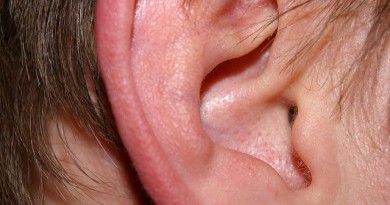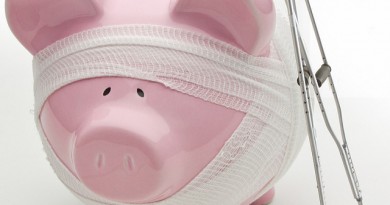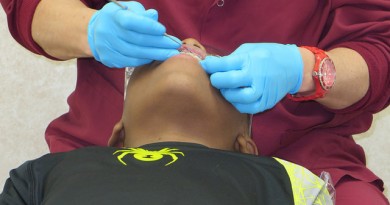How Much Does Gastric Bypass Surgery Cost?
Gastric bypass surgery costs anywhere from $15,000-$60,000. There are several different types of gastric bypass surgeries: the cheapest type is the mini gastric bypass, while the most expensive is the Roux-en-Y gastric bypass.
Average cost of Gastric Bypass Surgery
According to WebMD, gastric bypass surgery ranges in price from $15,000-$60,000; however, the average price is around $25,000 for a full gastric bypass and about $19,000 for a mini gastric bypass. The cost of gastric bypass surgery is affected by many factors such as location, the Doctor’s experience, the type of anesthesia used, the amount of work that needs to be done, the type of gastric bypass that is done, and if the patient has insurance or not. Gastric bypass surgery costs cover everything from the surgeon’s fees, pre-surgery tests, nurses, surgery room rental, and post-op medications.
Mini Gastric Bypass Surgery Cost
A mini gastric bypass achieves the same results as a full gastric bypass does. It is a relatively new procedure that cuts down operating times significantly. It also reduces the risk of complications and is less stressful on the patient’s body. A mini gastric bypass is generally several thousand dollars less expensive than a traditional gastric bypass is. A mini gastric bypass ranges in price from $16,000-$22,000, with an average of around $19,000. As the mini gastric bypass procedure is quite new many surgeons have not had the training to do it so finding an experienced surgeon for one can be difficult. Generally, mini gastric bypass are not covered by insurance.
Gastric Bypass Surgery Financing
A gastric bypass is an expensive procedure, one most people cannot afford out of pocket. There are many financing companies that will loan money for the operation and all the costs surrounding it. Just like any financing company, the loan will need to be paid off in monthly payments and there will be interest charged. Medicard Finance is one of the most popular financing companies in the United States for getting a loan for medical procedures, be them cosmetic or being done for health reasons. Medicard also offers financing to Canadians; however if referred by a Doctor, gastric bypass are covered by Canada’s free healthcare.
Gastric Bypass Surgery Insurance Coverage
Thanks to President Obama’s Affordable Health Care Act, insurance companies in 23 States are now required by law to cover medically needed weight loss procedures. A gastric bypass is a “bariatric surgery”. However, patients will need to be referred by a Doctor and will need to meet certain requirements. Generally, to get a referral patients will need to have a body mass index of 40 or more, or a body mass index of 35 with a medical condition that is being caused by the weight such as diabetes, high blood pressure or sleep apnea. Some insurance plans require the patients to participate in a Doctor supervised weight loss program before they will approve them for coverage of a gastric bypass. Some of the most popular insurance companies that offer gastric bypass surgery insurance are Medicare, Medicaid, Blue Cross/Blue Shield, Aetna, OptumHealth, Tricare, Priority Health, United Healthcare and Blue Care Network. If considering a gastric bypass, patients should check their gastric bypass surgery insurance carefully, different policies will cover different amounts. Very few policies will cover the entire procedure, so patients need to be prepared to pay for much of the surgery themselves.
What is Gastric Bypass Surgery
A gastric bypass surgery is a procedure that helps people with serious weight problems. During the surgery the Surgeon divides the stomach into two sections; a small upper section called a pouch and a larger lower “remnant” section. When eating, the food goes to the small upper stomach section, which is very small and only holds an ounce of food. The surgeon then rearranges the small intestine to connect to both sections. The much smaller stomach helps the patient control their eating and makes it difficult for them to overindulge. Once a gastric bypass is done overeating will make the patient sick. Over the years, surgeons have developed several different techniques in reconnecting the small intestines to the two stomach sections, thus giving patients several different gastric bypass procedures to choose from. Patients should speak to their Doctor about gastric bypass surgery and learn about their options.
Types of Gastric Bypass Surgery and What They Cost
There are five common types of gastric bypass available today: Roux-en-Y, adjustable laparoscopic gastric banding, mini gastric bypass, sleeve gastrectomy and Duodenal switch with biliopancreatic diversion.
The Roux-en-Y is the most common gastric bypass. During the procedure the stomach is split in two and all food and drink eaten go to the very small upper stomach section. The average cost of a Roux-en-Y gastric bypass is around $24,000.
A mini gastric bypass is very similar to a Roux-en-Y gastric bypass, it is just quicker and less expensive. The average cost of a mini gastric bypass is about $19,000. Due to the newness of the procedure it is not available at all locations and is often not covered by insurance.
Adjustable laparoscopic gastric banding is a procedure where a band that contains an inflated balloon is secured to the top part of the stomach creating a small pouch at the top of the stomach with a very narrow opening to the rest of the stomach. Adjustable laparoscopic gastric banding costs range from $9000-$30,000, with an average cost of around $15,000.
Sleeve gastrectomy is when part of the stomach is removed and the rest is formed into a tube like pouch. The small tube-like pouch cannot contain much food, which helps keep the patient from overeating. A Sleeve gastrectomy costs from $12,000-$60,000. The average cost is around $19,000.
A Duodenal switch with biliopancreatic diversion is very similar to a Sleeve gastrectomy as it removes a large portion of the stomach. The Surgeon leaves the valve that releases food to the small intestine and the first part of the small intestine intact. The middle part of the small intestine is closed off and the last part is attached to the first part. A Duodenal switch with biliopancreatic diversion costs range from $15,000-$25,000.
Risks of Gastric Bypass Surgery
Gastric bypass surgery is a complicated operation that comes with many risks, both during the operation and after it. Gastric bypass surgery complications range from infection, bleeding, blood clots, diarrhea, constipation, dumping syndrome, gallstones, hernia, dehydration, vitamin deficiency, leaks, kidney stones, nausea, vomiting, low blood sugar and ulcers. Gastric bypass surgery complications also include the chance of organ damage during the surgery itself.
Gastric Bypass Surgery Diet
Before the surgery, patients will need to follow a very strict liquid diet. Depending on the patient, the pre-op liquid diet will last for 7-14 days. It is extremely important that the diet be followed perfectly, for if it is not, the operation will need to canceled. The pre-op liquid diet generally consists of protein shakes, soup broth and vegetable juices. No solid food should be eaten without the Doctor’s permission.
After the surgery, a strict diet will need to be followed so the stomach heals properly. A strict liquid diet is usually recommended for 1-7 days after the surgery. Usually the patient is told to drink 1-2 ounces of clear liquid every couple of hours. After a few days to a week, they will graduate to protein shakes, eggs white and pureed meats.
By week 4-5 after the surgery, soft foods are slowly introduced into the diet and the patient can eat things like lean meat, fish, egg whites, soft cheese, bananas, and cooked carrots, green beans and squash, During this time, a good multivitamin should be added to the diet and 400-600 mg of calcium citrate.
During week 6, solid foods are introduced into the diet. Food should be chewed well, at least 15 seconds per bite. Food and drinks should be separated by at least a half an hour. Due to the small stomach size of a gastric bypass patient, nutrient rich food is essential. It can be very hard to get enough nutrients with such a small stomach, so everything eaten needs to be very healthy. Processed food should be avoided. Some foods are very hard to digest and should only be eaten sparingly: beef, shellfish, pork, corn, grapes, nuts and beans.
Sweets and fatty foods should be eaten with care as they can cause “Dumping syndrome”. When too many sweets or fatty foods are eaten or they are eaten too quickly, they do not digest properly and can cause severe nausea, cramping, diarrhea, vomiting, profuse sweating and increased heart rate. These very unpleasant symptoms can last for several hours. More details about the diet can be found here.
- 803SHARES






